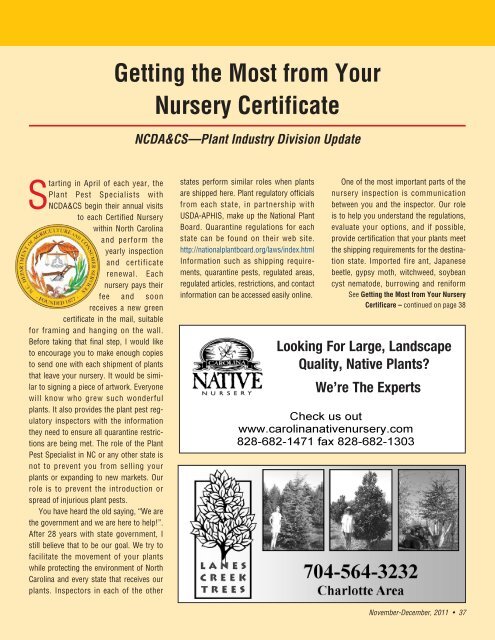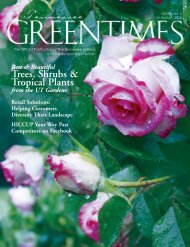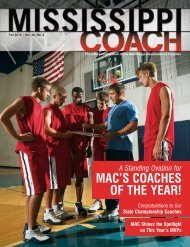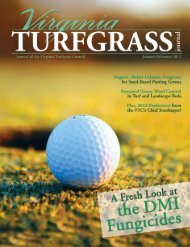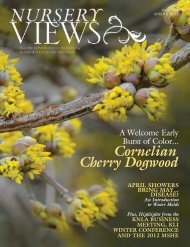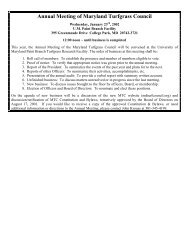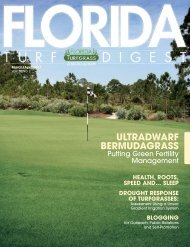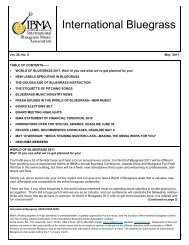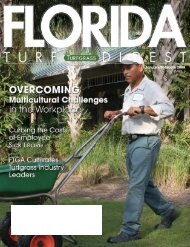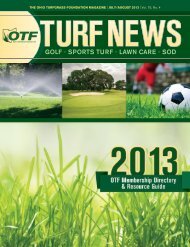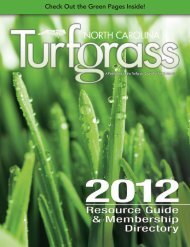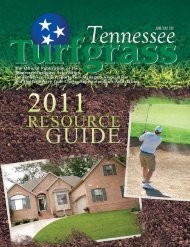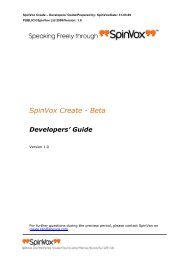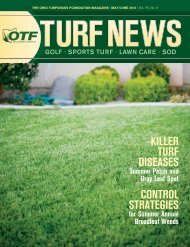Nursery Notes Nov-Dec 2011 - The Paginator
Nursery Notes Nov-Dec 2011 - The Paginator
Nursery Notes Nov-Dec 2011 - The Paginator
You also want an ePaper? Increase the reach of your titles
YUMPU automatically turns print PDFs into web optimized ePapers that Google loves.
Getting the Most from Your<br />
<strong>Nursery</strong> Certificate<br />
NCDA&CS—Plant Industry Division Update<br />
Starting in April of each year, the<br />
Plant Pest Specialists with<br />
NCDA&CS begin their annual visits<br />
to each Certified <strong>Nursery</strong><br />
within North Carolina<br />
and perform the<br />
yearly inspection<br />
and certificate<br />
renewal. Each<br />
nursery pays their<br />
fee and soon<br />
receives a new green<br />
certificate in the mail, suitable<br />
for framing and hanging on the wall.<br />
Before taking that final step, I would like<br />
to encourage you to make enough copies<br />
to send one with each shipment of plants<br />
that leave your nursery. It would be similar<br />
to signing a piece of artwork. Everyone<br />
will know who grew such wonderful<br />
plants. It also provides the plant pest regulatory<br />
inspectors with the information<br />
they need to ensure all quarantine restrictions<br />
are being met. <strong>The</strong> role of the Plant<br />
Pest Specialist in NC or any other state is<br />
not to prevent you from selling your<br />
plants or expanding to new markets. Our<br />
role is to prevent the introduction or<br />
spread of injurious plant pests.<br />
You have heard the old saying, “We are<br />
the government and we are here to help!”.<br />
After 28 years with state government, I<br />
still believe that to be our goal. We try to<br />
facilitate the movement of your plants<br />
while protecting the environment of North<br />
Carolina and every state that receives our<br />
plants. Inspectors in each of the other<br />
states perform similar roles when plants<br />
are shipped here. Plant regulatory officials<br />
from each state, in partnership with<br />
USDA-APHIS, make up the National Plant<br />
Board. Quarantine regulations for each<br />
state can be found on their web site.<br />
http://nationalplantboard.org/laws/index.html<br />
Information such as shipping requirements,<br />
quarantine pests, regulated areas,<br />
regulated articles, restrictions, and contact<br />
information can be accessed easily online.<br />
One of the most important parts of the<br />
nursery inspection is communication<br />
between you and the inspector. Our role<br />
is to help you understand the regulations,<br />
evaluate your options, and if possible,<br />
provide certification that your plants meet<br />
the shipping requirements for the destination<br />
state. Imported fire ant, Japanese<br />
beetle, gypsy moth, witchweed, soybean<br />
cyst nematode, burrowing and reniform<br />
See Getting the Most from Your <strong>Nursery</strong><br />
Certificare – continued on page 38<br />
Looking For Large, Landscape<br />
Quality, Native Plants<br />
We’re <strong>The</strong> Experts<br />
Check us out<br />
www.carolinanativenursery.com<br />
828-682-1471 fax 828-682-1303<br />
<strong>Nov</strong>ember-<strong>Dec</strong>ember, <strong>2011</strong> • 37


